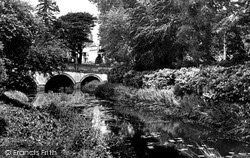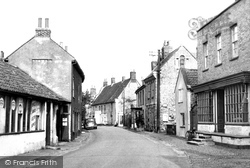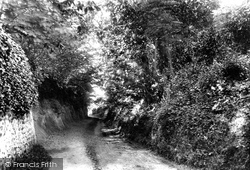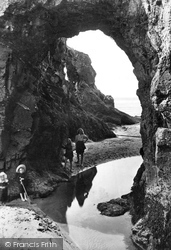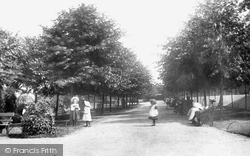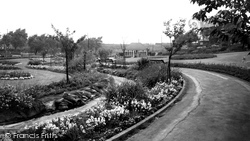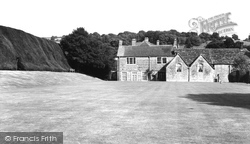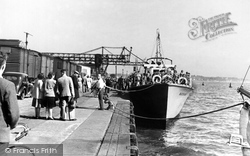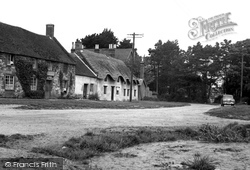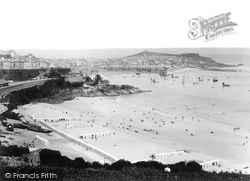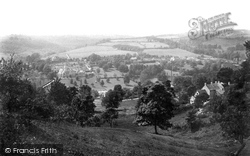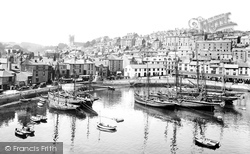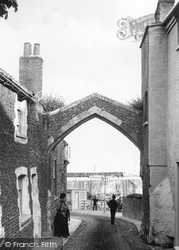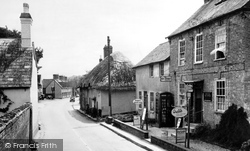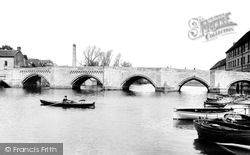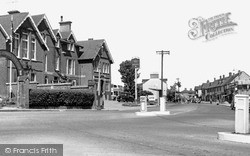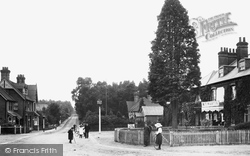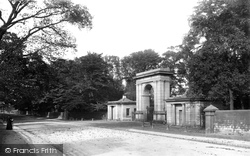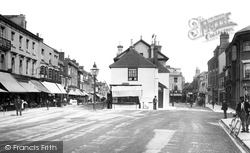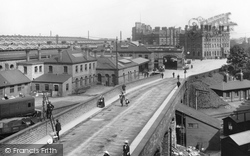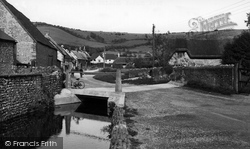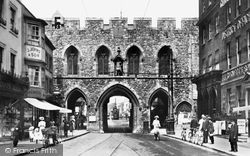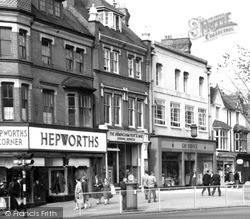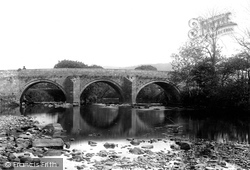Places
Sorry, no places were found that related to your search.
Photos
5 photos found. Showing results 661 to 5.
Maps
83 maps found.
Books
Sorry, no books were found that related to your search.
Memories
1,128 memories found. Showing results 331 to 340.
Ghosts
Both my aunts lived in Riverham in Grassendale. I went on a recent trip with one aunt and she pointed out a spot where she claims to have seen a ghost a Victorian-dressed woman in an ankle length blue/purple dress walking towards her ...Read more
A memory of Grassendale in 1968 by
Larkswood Pool
Although I have put 1961 for this shared memory, any year between 1959 and 1966 would fit the bill, because I used to be there most days from early morning till late, from early May till early September when the pool shut. I went ...Read more
A memory of Chingford in 1961 by
Ightham Village
My sisters Rita, Susan and me all attended Ightham Primary School, the headmaster was Mr Foster, he travelled every day from Maidstone by car, Mrs Kath Gordon, Miss Tomkins being the other teachers, Mrs Hussey replacing Miss ...Read more
A memory of Ightham by
Farming From Horses To Electronics
My grandfather G. A. Smith took the tenancy of Springs Farm on Edingley Moor in 1931, when I was six months old. A builder by trade, and a sergeant in the Sherwood Rangers Yeomanry during the First World War, he ...Read more
A memory of Edingley in 1930 by
Growing Up In Wombwell
My family and I, the Oughtons, lived at 53, Wombwell Main Row, a community for miners and their families. My dad worked at Darfield Main pit all of his life up until early retirement in the early 1980s. I have kept in touch ...Read more
A memory of Wombwell in 1967 by
Orchard Gardens
In about 1972 we as a family moved into West Challow, although with being at a young age I hated it, since moving from Wantage and my friends this it seemed was in the middle of nowhere. I used to cycle most days to Icknield, ...Read more
A memory of West Challow by
Netherthong Public Houses Part 1
This chapter is a work in progress and as it is more than the 1000 words allowed in this memory, I have split it into 2 sections. The current title is : Public House, inn, alehouse, tavern, pothouse, beer ...Read more
A memory of Netherthong by
My Mothers Memories
My mother who is 93 this year and very much alive and kicking is descended from the Cropthorne Dingleys. She spent much of her early childhood and teenage years before ww2 with her family in Cropthorne. She has such vivid ...Read more
A memory of Cropthorne
Church Lane
I was intrigued to read your memory as we lived at Roslyn from 1954 to 1964 and then moved to Frenchlands Lane where I have stayed, losing Jocelyn in 2004. Children Anne Jane Susan Ian Andrew and John all doing well. Village ...Read more
A memory of Lower Broadheath in 1954 by
Netherthong Public Houses Part 2
This is the second part of my ongoing research into the public houses in Netherthong. There is reference to two inns in Thongsbridge in 1853 - the Rose & Crown publican Hiram Earnshaw, and the Royal Oak ...Read more
A memory of Netherthong by
Captions
1,233 captions found. Showing results 793 to 816.
The elegant, five-arched ashlar bridge of around 1830 is named after the Countess of Wilton, whose husband - a well-known figure in the hunting world - bought Egerton Lodge and entertained the rich and
Cley (rhymes with sky), once a busy port, is now a sleepy village, where nothing much has changed since this photograph was taken.
The area still retains much of this rural charm with its canopy of trees and ancient hedgerows.
Visitors to the great sandy beach at Perranporth can also explore the caves and arches in the cliffs on the west side at low tide.
Much of this avenue survives the outer bailey, although it is now bounded by 1920s low walling, and the ornate benches have been replaced by more utilitarian ones.
Complete with a stream and ornamental flowerbeds, the Valley Gardens still give much pleasure to shoppers seeking relaxation after shopping in nearby Carlton Street.
Melcombe Bingham's manor house dates back to the time of the Plantagenet kings, though much of the present building is Tudor.
Poole continues to function as a port, though as much now for leisure craft as merchant shipping.
This straggling village has spent much of the last fifty years being dominated by a structure that proved to be as controversial - the Winfrith Atomic Energy Station.
Compared with the view of Porthminster Beach taken in 1890, this view indicates how much the holiday industry had taken over the St Ives beaches.
Originally 15 acres in extent, it is now much silted up. The bill for the original construction of the dam was £945.
Lyte was the much loved Victorian parson of the fishing town, living high above the town at Berry Head House.
Leading from the old village to the harbour beyond, this 16th-century arch, originally fitted with a portcullis and gates, was built to protect the settlement against pirates and smugglers.
Much of Puddletown was rebuilt in 1864, but the area around the church suggests the village that the young Hardy would have known.
Its building was begun in 1332 to connect Huntingdon with Godmanchester, and the respective authorities paid for three arches - note the different styles - with the builders starting on each bank and meeting
In the foreground stands the arch of the Conservative Club, with the solid brick-built Cambridge Hotel next door. The honey-pot style telegraph poles carry lines to the surrounding
However, the influence of the Roman Occupation is still much in evidence. The Devil's Highway, a Roman road, passes through the village, and two Roman milestones can still be seen locally.
The arched gate and the lodges at the entrance to Haigh Park are thought to date from c1840.
The broad High Street, once the site of the market established under a charter from Edward I, was, at the turn of the last century, still very much a rendezvous for the cattle and sheep farmers of the
Much of the street plan was changed. One example was that Thieves Lane became Station Road.
Winchester College has owned much of Sydling for generations, ensuring a continuity of building and landscape conservation missing in so many Dorset villages.
Characterised by pointed arches and fine stonework, the old gate is also renowned for its statue of George III gazing down the High Street, dressed as a Roman and wearing a toga.
They look even more unnatural these days, as they are severely pollarded in the French style, but they would be much missed if they were removed.
The handsome Leadmill Bridge, on the Grindleford approach to Hathersage, spans the Derwent in three graceful gritstone arches.
Places (0)
Photos (5)
Memories (1128)
Books (0)
Maps (83)


